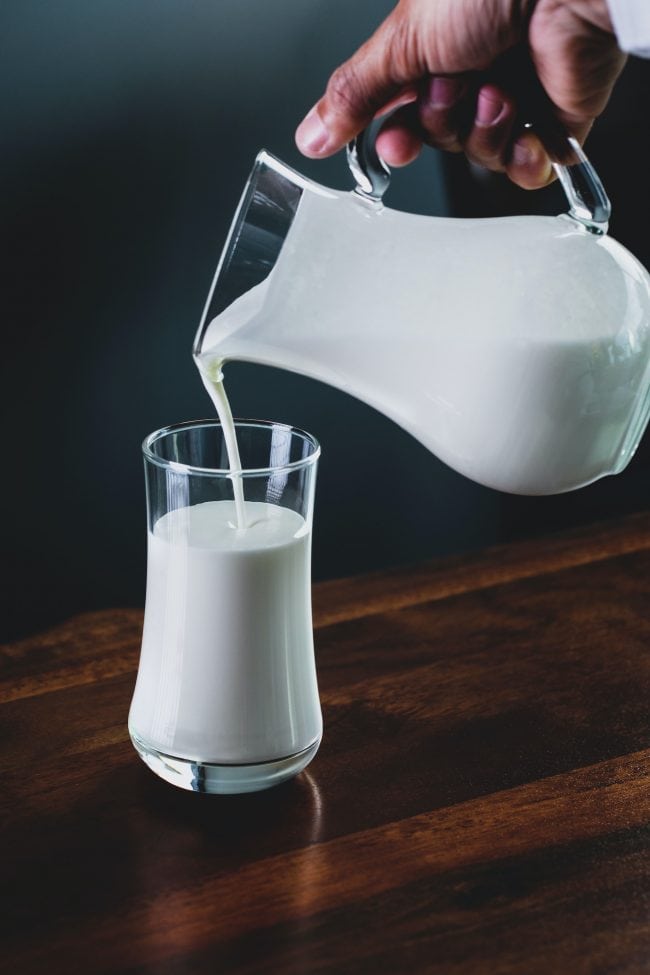Cottage cheese offers a soft but creamy texture that goes well with main meals and desserts.
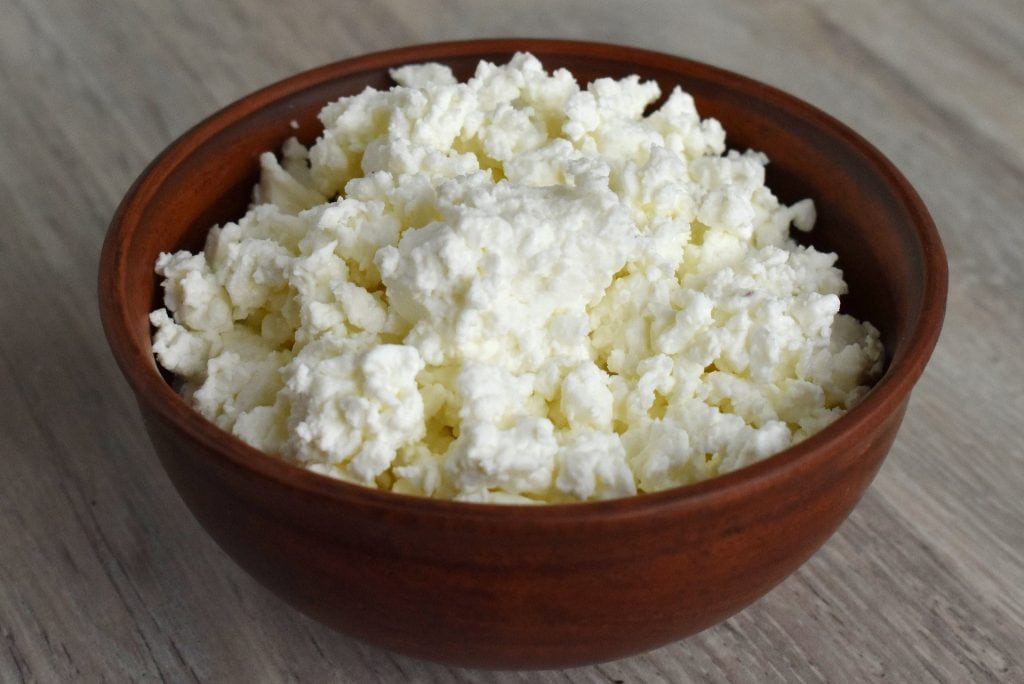
But is cottage cheese keto, and can you eat cottage cheese without spiking inflammation and blood sugar?
This post will answer all your questions about eating cottage cheese on keto. We’ll look at cottage cheese nutrition while going through my favorite keto-friendly cottage cheese brands.
Is Cottage Cheese Keto?
KetoConnect verdict: We give cottage cheese a keto-friendly rating of ⭐⭐⭐⭐(out of 5)
You can eat cottage cheese on a ketogenic diet because a half a cup serving only has four grams of carbs.
Cottage cheese is also naturally high in sodium, which is an important weapon to fight the symptoms of keto flu.
But not all cottage cheese brands are ketofriendly. Some companies add maltodextrin and other ingredients, so their product lasts longer and tastes sweeter, but these additives may spike inflammation and blood sugar.
Also, check that your cottage cheese uses whole milk instead of low-fat milk. Low-fat products normally contain extra sugar to replace the flavor lost from the fat, inhibiting ketosis.
What Is Cottage Cheese?
Cottage cheese is a soft and creamy cheese produced by heating whole milk, setting it into a solid curd, and cooking it until soft.
This is why making cottage cheese at home with warm milk and lemon juice is so easy.
All you need to do is pour your milk and lemon juice into a pot on medium heat until the milk starts to curd. Remove this curd, drain it with a clean dishcloth, and you’ll have tasty cottage cheese.
Which Cottage Cheese Is Best for Keto?
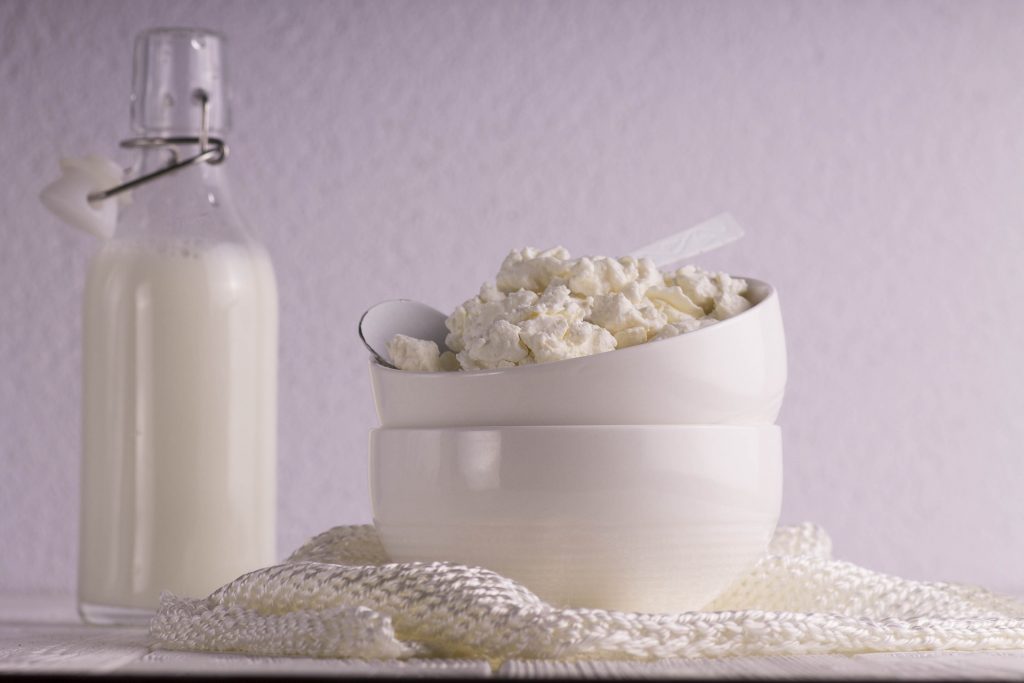
Although cottage cheese is generally keto, you still want to read the label. Many brands add ingredients like maltodextrin and modified food starch to make their products taste better.
The small quantities may not affect ketosis, but it can trigger inflammation. So stick to these keto friendly cottage cheese brands:
- Traders Point Creamery Cottage Cheese
- Full Circle Organic Cottage Cheese
- Wegmans Cottage Cheese
- Good Culture Double Cream Cottage Cheese
- Kalona Super Natural Cottage Cheese
- Westby Organic Cottage Cheese
- Nancy’s Organic Cottage Cheese
Traders Point Creamery Cottage Cheese
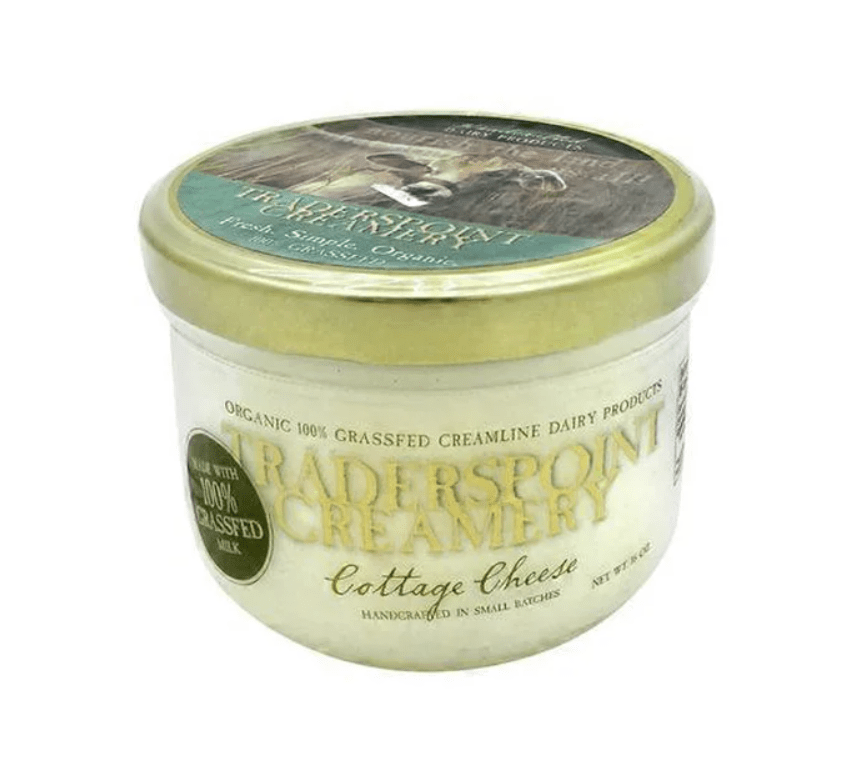
Traders Point stays away from added sugar, maltodextrin, and refined oils. Instead, they add:
- Organic 100 percent grass-fed milk
- Kosher salt
- Lactic cultures
This can help keep your blood glucose and insulin levels steady while feeding your gut microbiome.
You’ll also be happy to know that multiple studies link a healthy gut microbiome to a longer lifespan and stronger immune function.
Full Circle Organic Cottage Cheese
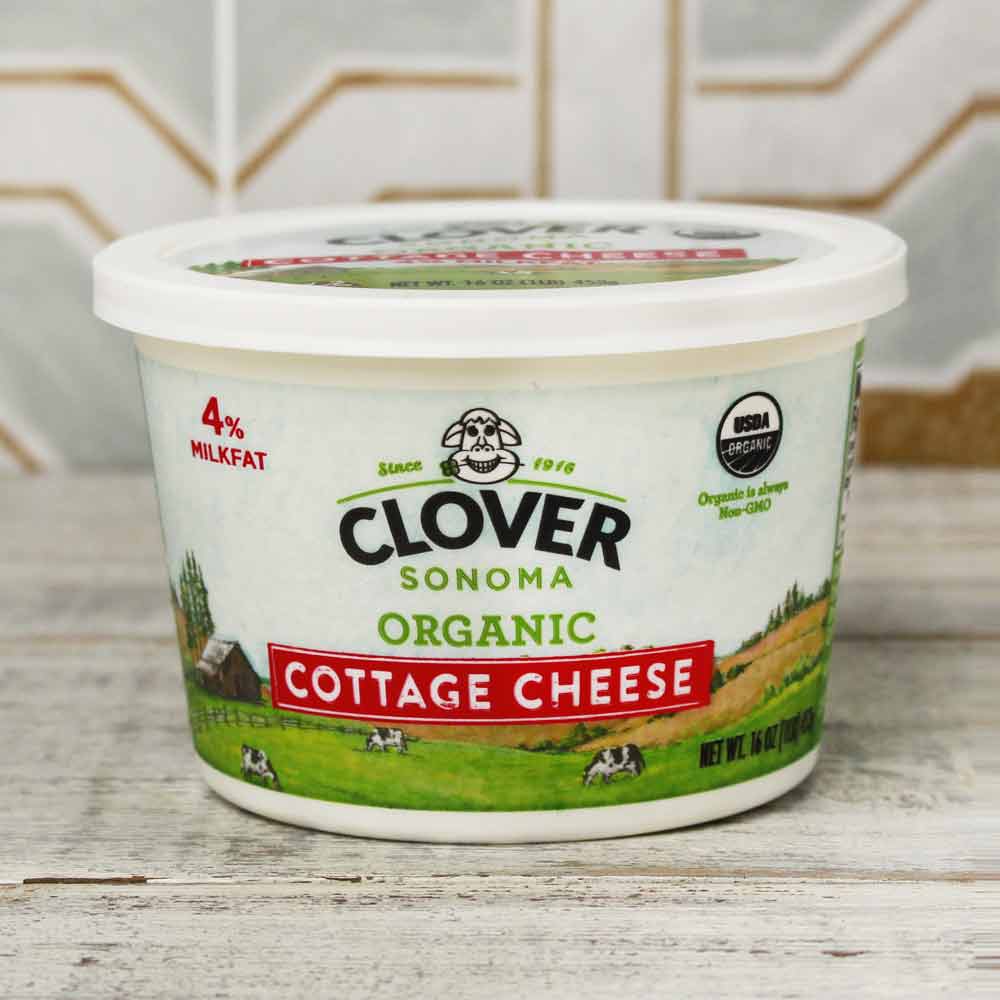
Full Circle organic cottage cheese is another keto-friendly option as half a cup has 2.7 grams of net carbs. The protein count is also high, clocking in at 12 grams, which is perfect for athletes.
Like Traders Point, Full Circle doesn’t use refined oils or unnecessary additives. Full Circle opted for whole milk since it’s high in healthy fats, helping you stay in ketosis. But you still want to diversify your fat intake by including other high-fat foods such as butter, coconut oil, beef, eggs and fish in your diet.
These are the ingredients you’ll find in a tub of Full Circle organic cottage cheese:
- Organic skim milk
- Salt
- Organic whole milk
- Organic cream
- Live active cultures
Wegmans Organic Cottage Cheese
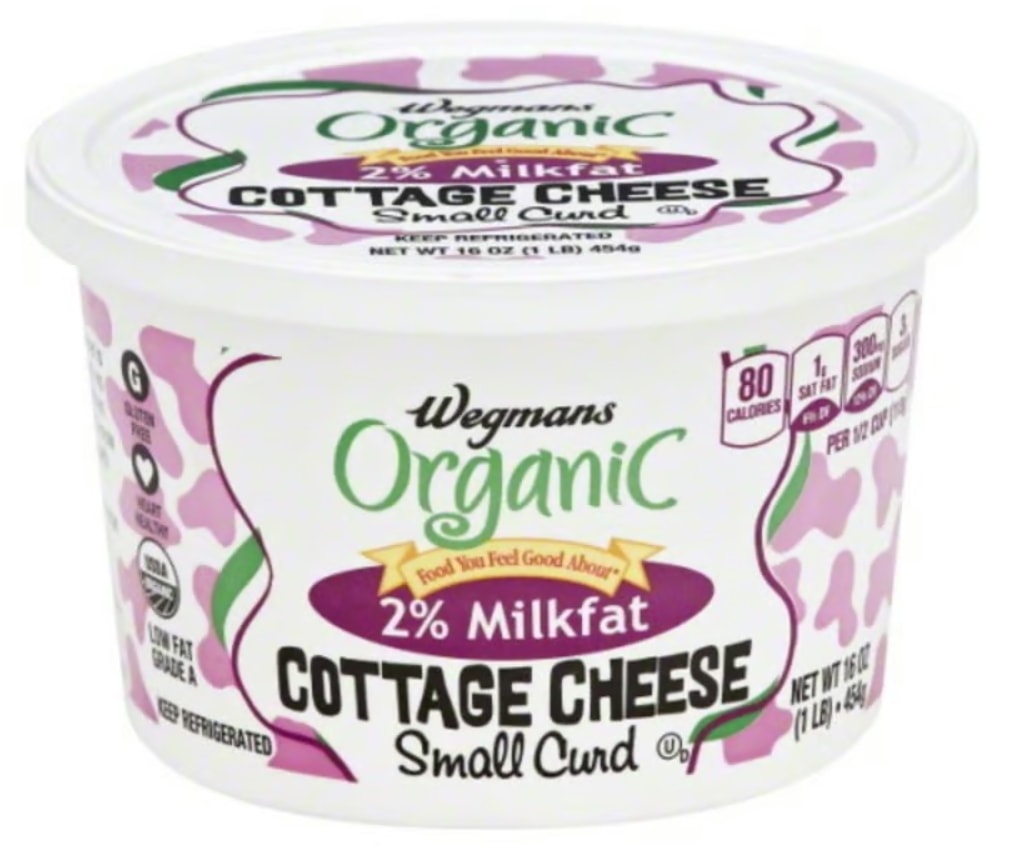
Wegmans produced this heart-healthy, low-carb cottage cheese with all-natural ingredients.
I like that this organic cottage cheese doesn’t have that watery consistency you get with some keto friendly cottage cheeses. Feel free to spread it on keto sandwiches and burgers without worrying about a runny consistency.
Wegmans uses the following ingredients to manufacture this cottage cheese:
- Organic Grade A skim milk
- Organic cow’s milk
- Organic cream
- Salt
- Live Active Cultures
Good Culture Double Cream Cottage Cheese
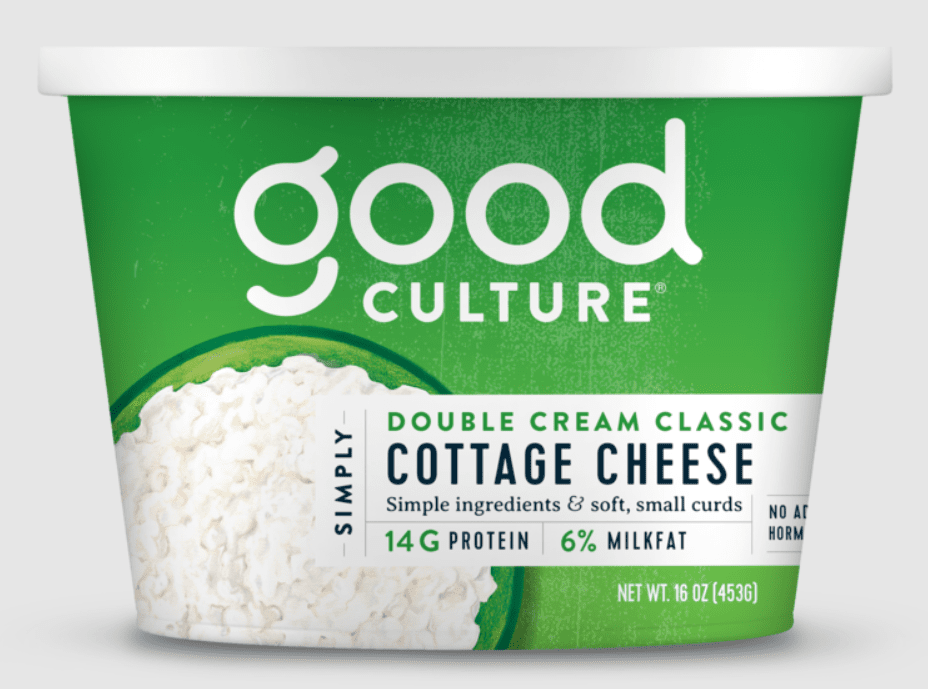
Half a cup of Good Culture fresh cheese has three grams of carbs, seven grams of fat, 14 grams of protein and 130 calories.
This makes it a low-calorie option for anyone trying to lose weight because you can use it as a dip to keep you going between meals.
Good Culture is super transparent about its manufacturing process. They use pasture-raised cows and organic cream. This gives you peace of mind knowing that you’re buying top-quality cottage cheese.
In this container, you’ll find:
- Skim milk
- Whole milk
- Cream
- Celtic sea salt
- Live and active cultures
Unlike previously mentioned brands, Good Culture uses Celtic sea salt, not regular table salt. This is good news because research shows this form of natural sea salt may help protect your body against kidney damage and high blood pressure.
Kalona Super Natural Cottage Cheese
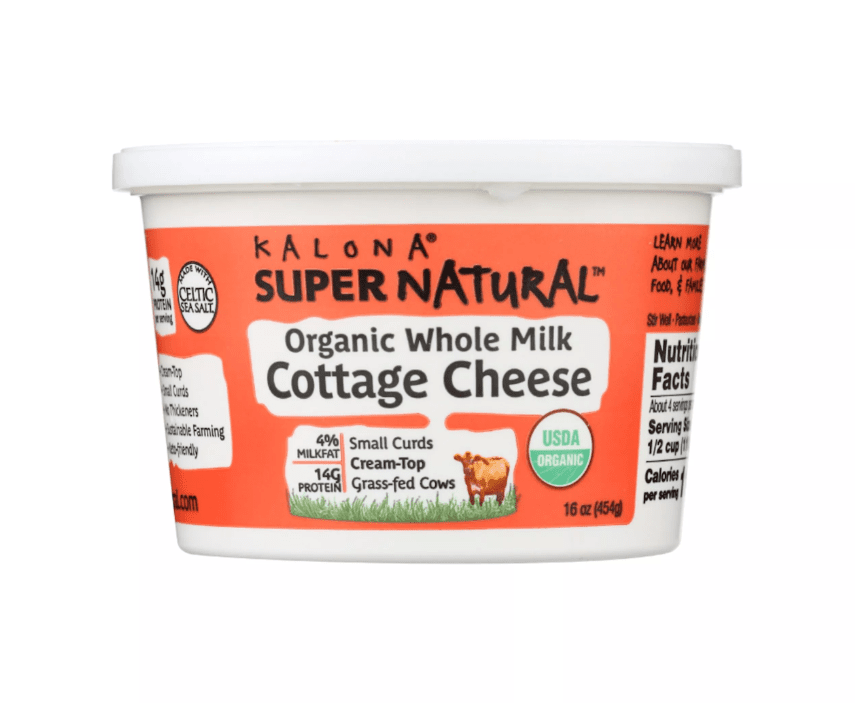
Half a cup of Kalona Super Natural cottage cheese has three grams of carbs, seven grams of fat, 12 grams of protein and 120 calories. It keeps the carb content down by using whole milk and zero additives.
But what caught my eye about Kalona Super Natural cheese is that a small family produces it using regenerative farming methods. This means farmers aren’t damaging the environment.
This cottage cheese uses the following ingredients:
- Certified organic non-fat milk
- Organic Grade A whole milk
- Organic cream
- Celtic sea salt
- Cultures
You’ll also notice that Kolona opted for low-temp pasteurization, which benefits your health as it retains important enzymes while destroying harmful bacteria.
Westby Organic Cottage Cheese
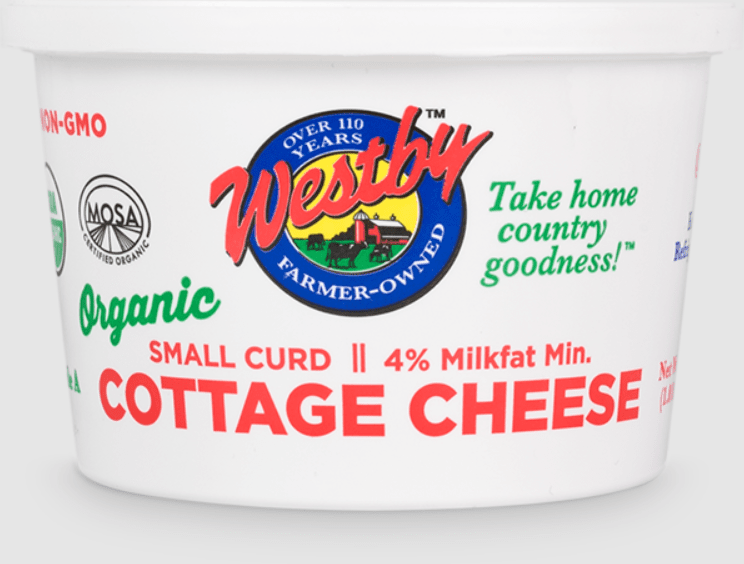
Westby organic cottage cheese has less than three grams of net carbs per half-cup serving. This fresh keto option is also comes in flavors like french onion dip and sour cream. So if you don’t want to snack on plain cottage cheese all the time, try Westby’s cottage cheese.
Westby also sells grass-fed keto products like butter, snack dips and sour cream. So it’s a convenient way to stock up on keto-friendly dairy products.
Nancy’s Organic Cottage Cheese
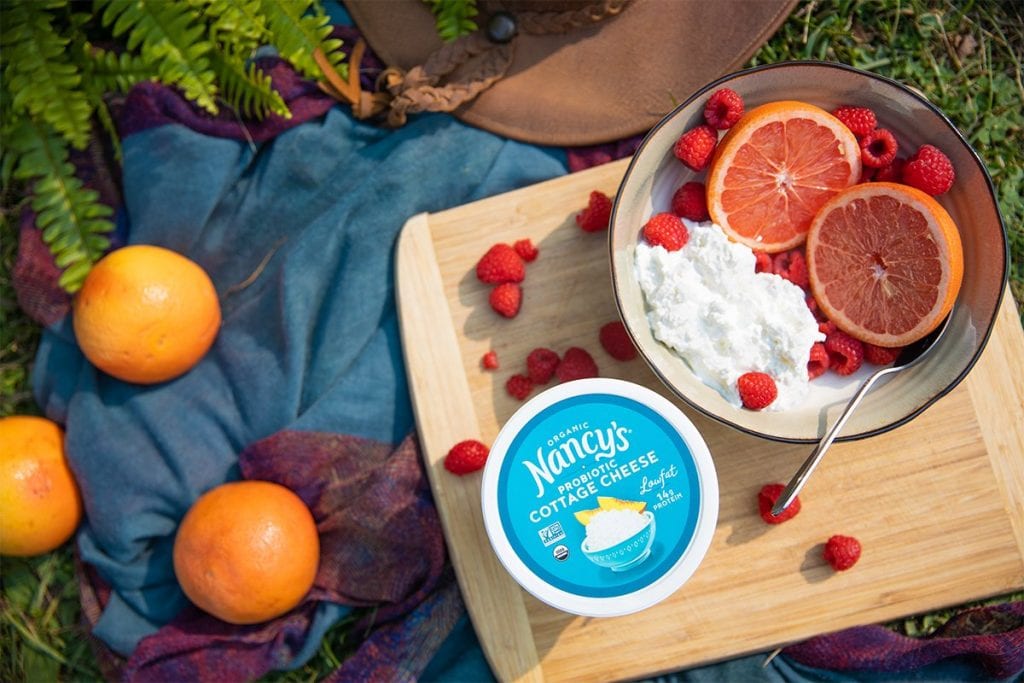
Nancy’s also sells low-fat cottage cheese, but I’m not a big fan of it since it isn’t as tasty as the full-fat version, and it has more carbs.
How Many Carbs Are in Cottage Cheese?
A half a cup serving of cottage cheese has four grams of net carbs, making it a suitable option for keto dieters.
But you still have to read the label. Even though it’s low-carb doesn’t mean it’s keto friendly. So avoid ingredients like:
- Maltodextrin
- Modified food starch
- Added sugar
- Preservatives and additives
Instead, look for brands that exclusively use milk, cream, salt and live cultures. If a product has any additional ingredients, I’d suggest staying away from it.
If your cottage cheese doesn’t contain maltodextrin and modified food starch, you shouldn’t have to worry about blood sugar spikes.
This is why plain cottage cheese is one of my favorite all-around health products. It’s goes well with most keto recipes, you can eat as much of it as you want, and it positively impacts your gut health. Cottage cheese also contains ample amounts of protein, helping you recover from workouts quicker.
Final Thoughts on Cottage Cheese Keto-Friendly
Full-fat cottage cheese is great on a keto diet because half a cup only contains around three to four grams of carbs. Feel free to whip up some cottage cheese pancakes or smoothies.
But always read the label before buying as some companies include additives that may not be keto friendly.
Instead, go for Traders Point, Full Circle and Wegmans cottage cheese. These brands stick to organic milk, cream, salt and live cultures.
If you are looking for more “is it keto” guides, read our articles about sour cream, ranch, buttermilk, cream cheese, oat milk, mayo, quinoa, and lupin flour.
Written by
Matt Gaedke
Matt is a former college basketball player turned computer engineer who discovered his passion for health and nutrition after cutting sugar from his diet in 2016. That year he founded KetoConnect with Megha in order to share their ketogenic lifestyle through recipes, videos, and educational content. Matt is always seeking to grow and try new things, a passion he shares with his wife and two amazing sons.
Expert Fact Checker
Kathryn Bubeck
Kathryn (Katy) Bubeck, RD, LDN is a Registered Dietitian with bachelor’s degrees in nutrition (University of Alabama) and health behavior management (University of Delaware). Originally from the Philadelphia suburbs, Katy has moved up and down the east coast for the past 20 years, and recently relocated to Baltimore, where she plans to eat ALL the seafood!
